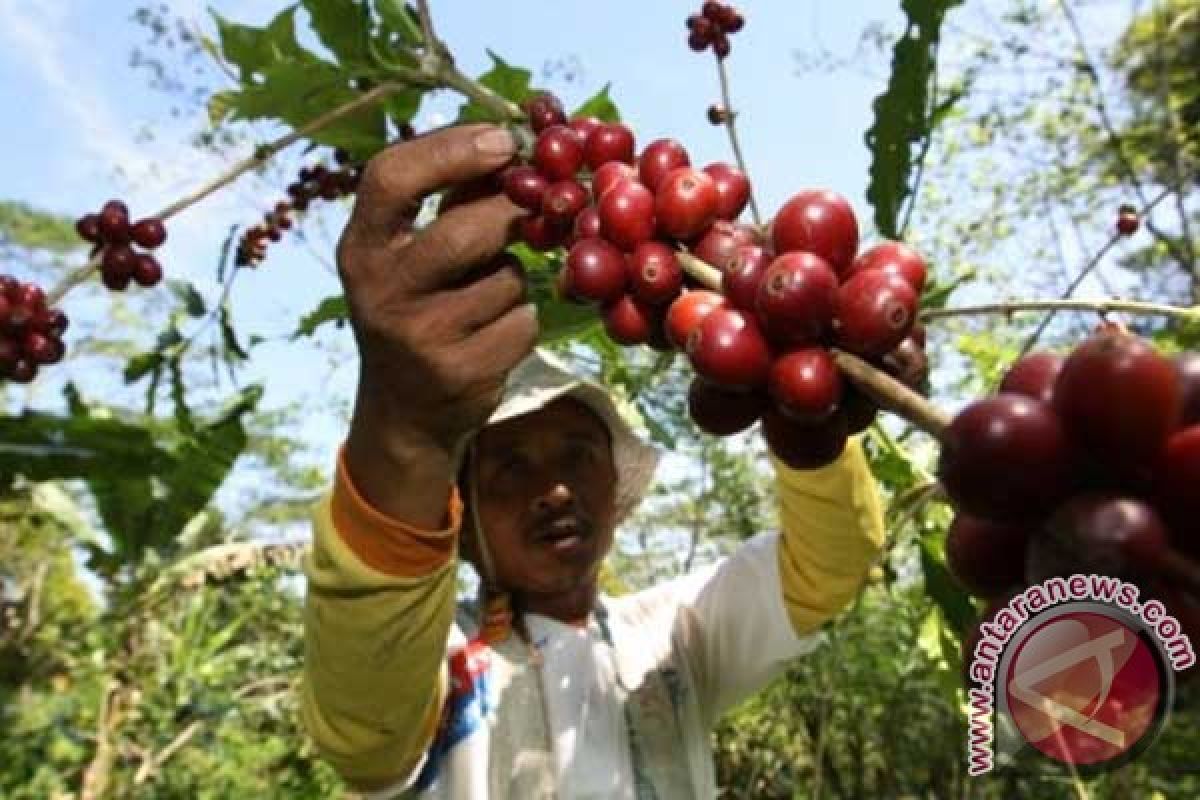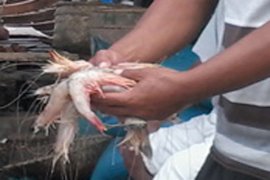Coffee bean exports dropped by 81.513 million kg this year as businesses switched to exporting processed coffee productsMedan (ANTARA News) - Indonesia`s coffee bean exports fell sharply to 64.612 million kg in the first quarter of 2012, down from 146.143 million kg in the same period last year, the chief of the Indonesian coffee exporters association (AEKI) said on Thursday.
"Coffee bean exports dropped by 81.513 million kg this year as businesses switched to exporting processed coffee products," AEKI chief Suyanto Hussein said.
As a result, foreign exchange income from coffee exports also dropped to US $245.324 million in the first quarter of this year, compared with US $371.531 million a year ago.
Suyanto said exporters have switched to processed coffee, to keep up with consumers` demand for processed coffee instead of coffee beans.
Sales of powdered coffee, instant coffee and three-in-one coffee -- which includes powdered coffee, sugar and milk -- are now stronger in the world market than sales of coffee beans.
He added that the volume of powdered coffee consumption has risen worldwide due to the global economic crisis.
PT Morning Glory, the West Java-based producer and processor of coffee, known for its Java Preanger coffee brand, said last month that it will export 18 tons of coffee to the Netherlands.
"We will be exporting 18 tons of coffee to Holland in 2012," Nathanael Charis, the owner of PT Morning Glory Coffee International confirmed.
The company has been exporting Java Preanger coffee since 2009.
"Our first export included shipping one container of coffee to Australia in 2009. We had plans for exporting in 2011 as well, but failed due to bad weather," Charis said.
West Java coffee has been very popular worldwide for the last few centuries, Charis said, adding that this was evident from history, when the Dutch East India Company (VOC) docked in Java Island for procuring spices and other commodities; but it was coffee that became their main export.
"At the time, Java Coffee or Java Preanger Coffee was known as Priangan coffee in Europe and in some other parts of the world." he said. He added that Priangan coffee became popular because of its mildness.
"However, its export stopped in 1924 after a leaf rust pest attack destroyed all coffee plants in west Java," Charis said.
Planting of coffee using Arabica seeds from central Aceh was resumed in west Java in 1997. "Coffee lovers have labeled this brew as Ateng coffee, which refers to central Aceh," he said.
He also pointed out that the export of coffee in its most basic form created an economic imbalance, because of the disparity existing between the low coffee prices given to the growers and the much higher prices prevalent in the international market.
Charis said that as a coffee roaster, he has tried to shorten this gap so as to allow coffee growers and processors in West Java to enjoy the economic benefits of the commodity.
"The only way to do that is to raise the Java Preanger Coffee brand to an international standard," he said.
He added that he has also approached traditional coffee growers and processors in west Java, and wishes to educate them so that their coffee products are accepted by the international market.
"Even though little interest was shown in this proposition initially, efforts made by the West Java Plantation Service resulted in a meeting in Garut on May 13, 2008," he said.
The meeting was attended by 150 West Java coffee farmers and processors, as well as buyers came from Australia, including Toby Smith, who to the gathering the working of the international coffee market.
(A014)
Editor: Ella Syafputri
Copyright © ANTARA 2012












